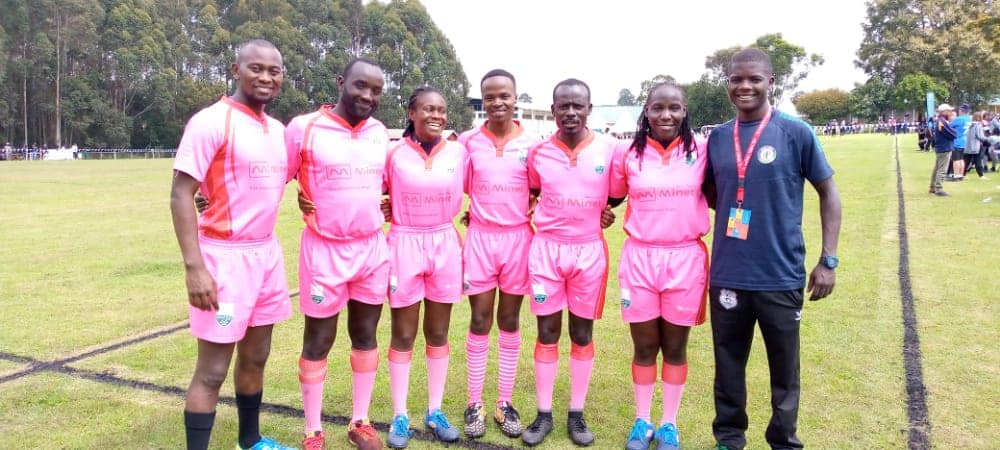The last rugby season was a tumultuous one in Kenya, with officiating at the center of numerous disputes.
The issue has become so widespread, that serious conversations should be held on what needs to happen to restore confidence in rugby officiating.
The sport has grown in popularity. Notwithstanding, with limited resources, the task of officiating has become increasingly difficult.
Recruitment and retention of referees
The recruitment and retention of referees in Kenya have long been an issue, and this past season seems to be no different. Referees are quitting or not being recruited as much as necessary, leaving some games short-staffed or canceled altogether.
So why is this a problem? The main reasons seem to be a lack of appreciation and poor pay. Frequently, young referees become full-fledged pessimists when burdened with the task of getting their own kits, and footing their transport while getting little to nothing in return, apart from the ‘vicious insults’ hauled at them by the spectators.
As a result, feelings of dissatisfaction, discouragement, and demoralization creep in. Referees feel that they are not compensated enough for their time and efforts.
To help address these issues, Kenya Rugby Union should launch several initiatives aimed at improving the recruitment and retention of referees. These include offering higher wages, providing additional training opportunities, increasing recognition for referees’ efforts, and creating proper pathways for aspiring young referees.
Referee Pathway and Training
It’s no secret that the way referees are trained and developed in Kenya is less than satisfactory. Not only do some of the existing pathways have gaps, but also insufficient resources available to referees have aggravated the challenges.
This is a time-ticking bomb for rugby officials in Kenya as it can lead to a wide array of issues. In particular, novice referees often struggle with understanding the rules of the game, which can result in inaccurate decisions being made.
To fix this, the focus should shift to developing more robust referee training programs and improving access to resources for referees. Additionally, better access to educational materials and continued support would help them hone their skills and become more confident in their ability as an official.
Organizational and Management Failure
The main problems match officials face include lack of training and resources, players more likely to challenge refereeing decisions, and crowds disrespecting referees even after correct calls. This means that referees find it increasingly difficult to manage games.
Noteworthy, all of these issues are deeply rooted in the lack of organization and management at the highest level. Poor policies on player conduct can give rise to dangerous situations while lack of funding for referee training can lead to mistakes on the pitch.
To resolve these problems, organizations must increase support and education for referees, ensure that regulations are followed by everyone involved in the game, and promote mutual respect between referees, teams, and fans.
Better remuneration
One perennial hitch facing officiating in Kenya is that of allowances and stipends. Frequently, referees have had to foot their travel expenses. This generates a huge problem, as it’s irrational to expect referees to make a meaningful contribution if they do not receive adequate remuneration.
The problem is further exacerbated by the low monetary reward for officiating relative to other demands on referees which include learning the rules of the game, becoming familiar with the laws of the game, and having practical experience in refereeing games. All this requires time and effort; time which could be better spent elsewhere if there wasn’t such a minimal incentive for officiating.
The solution that can be put in place to tackle this problem is to increase stipends and allowances for referees so that they are encouraged to take their jobs seriously. This could be done through increasing budgets set aside for refereeing or through sponsorships.
Long-term strategies
The referee’s job is a crucial one in any sport and has the potential to leave a lasting impression on the players, coaches, and spectators alike.
With more education for prospective refs, sufficient mentoring, better access to technology, and increasing emphasis on integrity, the conditions for rugby officiating in Kenya can be improved. With sufficient effort, we can work together to ensure that the referee’s dilemma is no longer a drawback and that the highest officiating standards are upheld.
The writer of this piece is a referee and also the author of the book ‘Redefining a Kenyan Referee’



